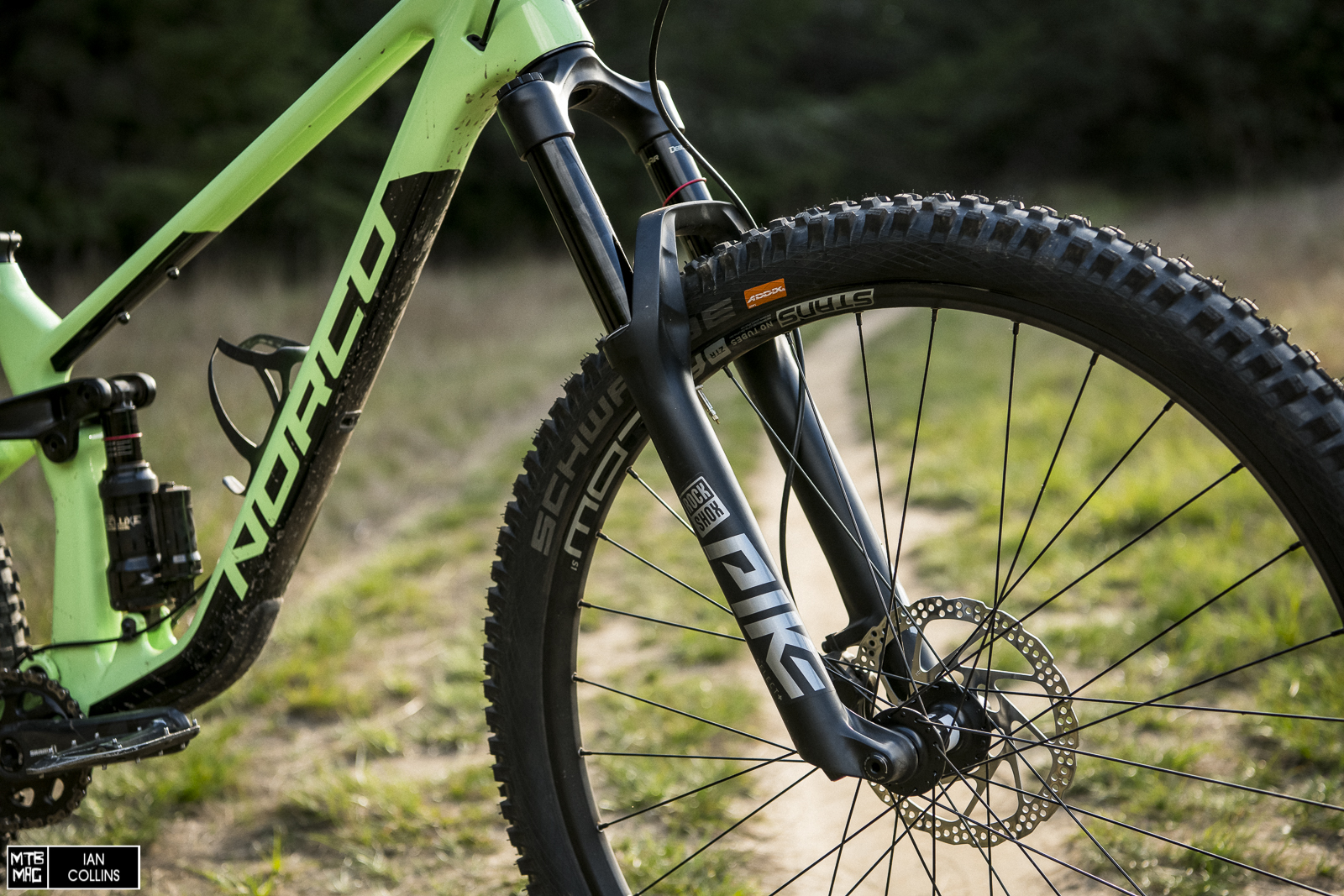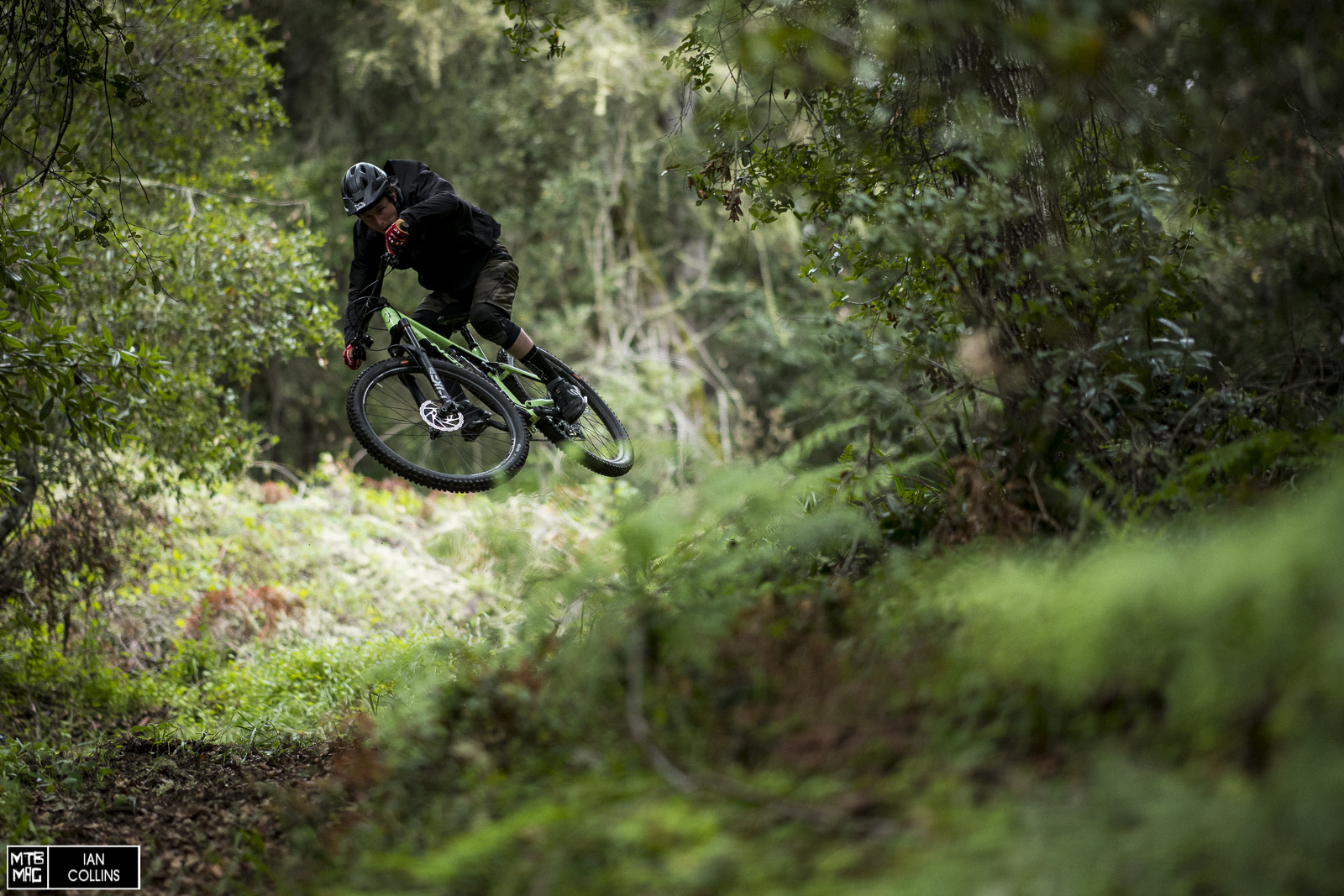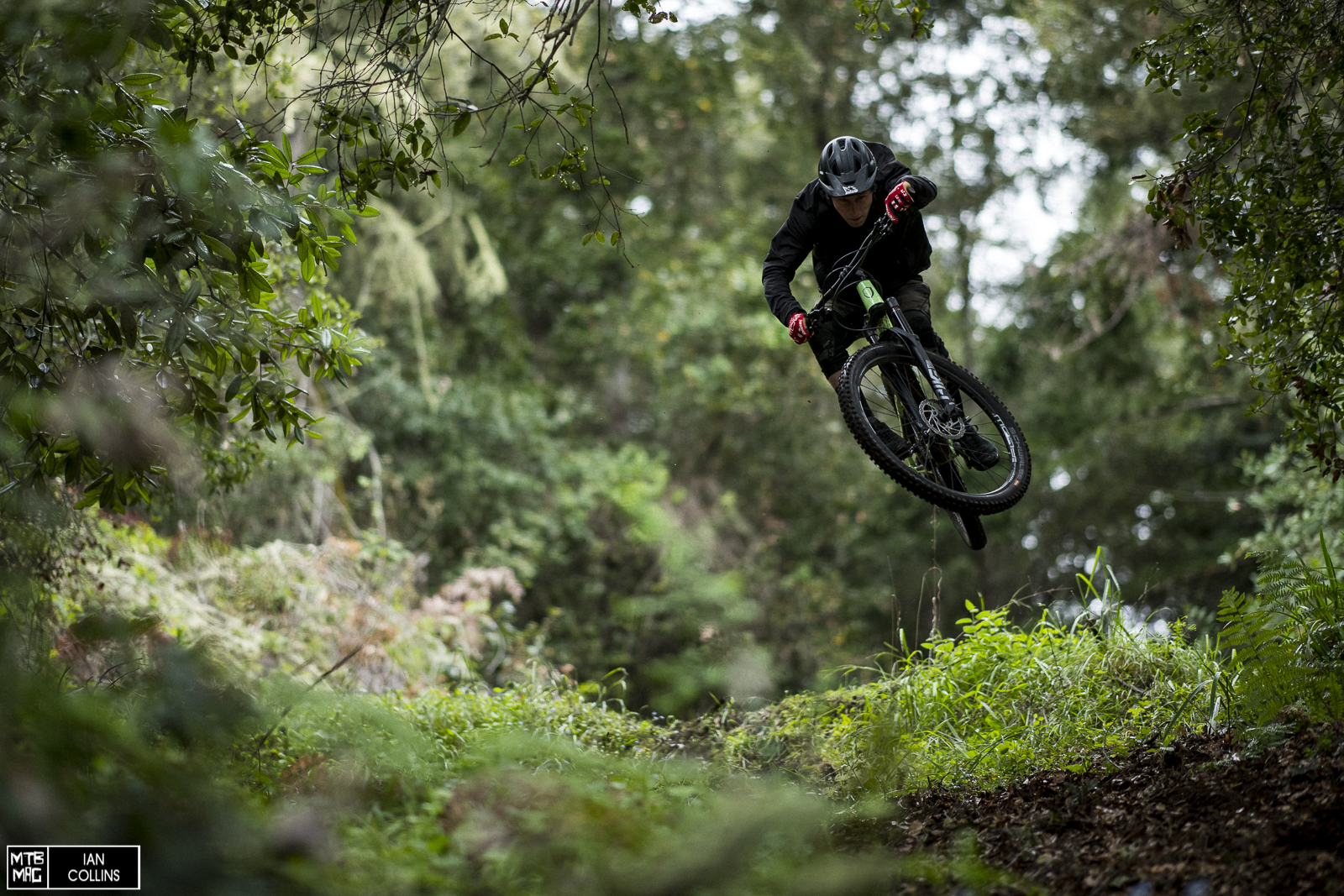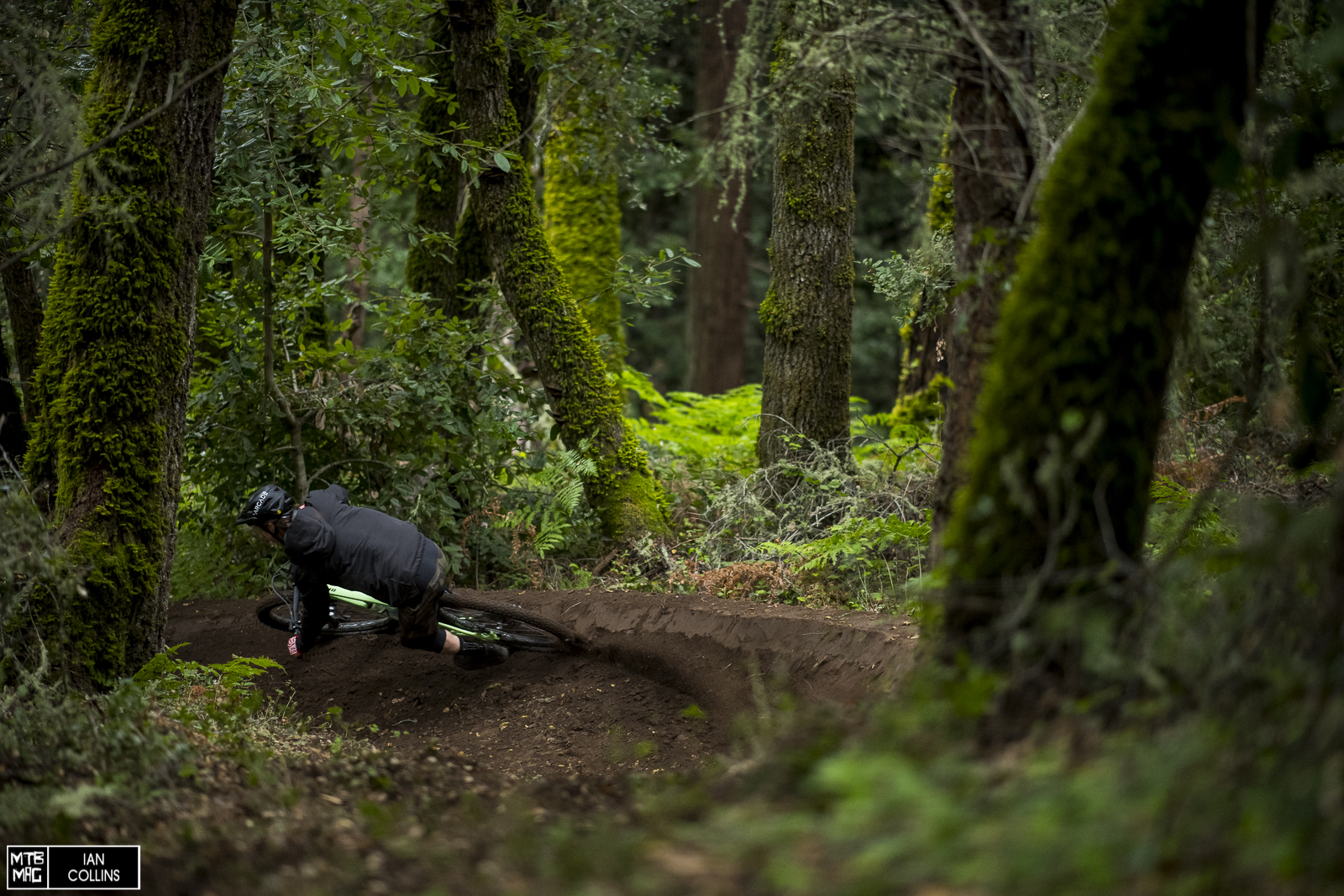[Tested] Norco Optic C2
It’s widely known that the Norco Optic has been praised by various athletes and editors. We were very keen to see what all the hype was about, and got our hands on the 2020 $4,699 Optic C2 for some serious trail time and testing. The C2 spec bike comes in a Green and Black colorway, and is sold in sizes Small through Extra Large. Full review, and riding video below.


Specs
- Metric shock spacing
- Boost hub spacing
- Tool / Tube Mount
- 140mm front travel / 125mm rear travel
- Chainstay length increases each size via “Ride Aligned”
- 750 ml bottle clearance,
- Sizes: S, M (tested), L, XL
- Weight: 30.82 lbs. – 13.98 kg. Size Medium, with flat pedals
- Price: $4,699 USD

A full GX Eagle drivetrain can be found on the Optic C2, complete with carbon X1 DUB cranks and a 30 tooth ring. The group set is more than proven at this point, and worked flawlessly for the duration of our test. The bike features a carbon front end, and an alloy rear, with an integrated chainstay protector.

Sleek internal cable routing helps maintain a clean aesthetic, and keeps noise down. The optional tool / tube storage mount under the top tube allows for a more secure mounting option than a strap would. See Wolftooth’s B-Rad system here.

The Optic C2 comes with ‘TranzX’ bars at a 780mm width, and a house brand stem that’s 45mm long with a 35mm diameter clamp. We swapped the stock Ergon grips, as the rubber was much too stiff, and lacked the comfort we were looking for. The Shimano Deore tier brakes were a bit of a surprise, we’d expect to see SLX on a bike of this caliber. With 180mm rotors front and rear, the brake set did work impressively well though.

A seemingly lesser talked about brand, the X-Fusion Manic, 150mm dropper was extremely smooth, and the lever paddle and action was comfortable and smooth respectively.

Simple yet sturdy frame gussets allow for plenty of tire clearance, the stock tire pictured is a 2.35 Hans Dampf.

The Fizik Taiga saddle has a sleek look to it, comfortable contour, yet had a bit stiffer and thinner foam material than we prefer.

Up front you’ll find a Schwalbe Magic Mary Super TLE, 29 “x 2.35”, Addix Soft compound with a Hans Dampf out back, this impeccable tire combo wraps the Stans Flow S1 rims that are laced to worry free DT Swiss 350 hubs.

Up front, the 140mm RockShox Pike Select Plus proved more than capable for most tasks, and after fine tuning pressure, settings, and tokens, it became a distinct asset in rowdy terrain.

Out back is a piece of tech unique to the Optic, at least in this category anyway – the RockShox Super Deluxe Ultimate DH. This shock is more commonly found on long travel bikes, which at 125mm the Optic certainly is not. Norco engineers decided to forgo the lockout on the Standard Super Deluxe RCT and instead worked to custom build this shock for the high performance ride feel they were looking for, and it immediately showed.
Geometry

The 2020 Optic’s Geometry immediately separates it from a standard ‘Trail’ bike. Sure it’s a 125 / 140mm bike, but with a slack 65 ° head tube angle, steep 76 ° seat tube angle, and a long-ish (size medium – 450mm) reach, the Optic begs to be pushed at high speeds. We also are a fan of the size chainstay / rear center lengths increasing through the size range, as it ensures the bike as a whole will handle the same throughout those sizes.
On the trail
Before we hit the trails, we took advantage of Norco’s signature ‘Ride Aligned’ setup system. We found the guide to be quite useful in establishing some base line settings before making preferential tweaks to suit our typical setup. In the photo below, you’ll notice Norco recommends a size Large frame, yet our editor rode a medium as he often prefers a smaller more nimble bike and is commonly right in between medium and large sizes. Norco provides a rider ability scale, and based on where you fall on it, different settings are suggested.

As we feel quite confident out on the trails, and tend to ride on the aggressive side, we based many of our settings off the ‘Pro’ rider skill setting, which is likely part of the reason the Ride Aligned guide suggested a Large. Anyhow, it was mostly spot on, but we did make some minor tweaks to things like tire pressure and stem spacing to further tailor the Optic to our liking.
After recent rides on a long travel ‘mullet’ bike, the compact fast nature of the Optic took a few runs to get acquatinted with. Once we settled in on the bike, it was game on. We found the Super Deluxe DH rear shock to be a highlight of the bike, and carry its petite 125mm of travel though rough and wild terrain with ease. It’s not easy to fit the ideal performance of rear travel feeling light off the top, supportive in the middle of the stroke, and ramping up at the end into just 125mm of travel, but Norco and RockShox pulled it off. The steep seat tube angle, and body position we found ourselves to be in, made for efficient climbing (even with no lockout lever present), and quick accelerations up and over roots, rocks etc.
For being a horst-link driven bike, the Optic not only excelled in the aforementioned descents, and climbs, but remained quite stable under braking forces. The platform is fairly simple, but made for reliable trail feel and efficient pedaling platform that we got accustomed to.
Cornering on the Optic was a dream, and its nimble nature allows the rider to push into turns, putting the bike in the best position, be it a flat banked corner, or a scooped and tight berm. The parts spec on the Optic C2 make for a very competitively priced bike – even sitting bone stock, the bike is incredibly capable and doesn’t call for any absolutely urgent part swaps (sans grips). However, a higher tier four piston brake set, a 200mm front rotor (the bike goes fast …), and wider bars would make the Optic C2 that much more ready for rowdy action.
Overall
The Optic is a hard charging bike, and though its travel numbers are similar to many other short travel 29 ‘trail bikes’, the Optic falls into a class of its own. Visually intriguing, confidence inspiring, and keen for a long pedal, the Optic is certainly a top contender for a do-it-all trail weapon. Specifically, it’s excellent rear suspension and balanced geo throughout the size range set it apart from most of the other bikes on the market.
Editors Note: As we are aware of the risks COVID-19 has on our society, our images and ride time on this product was done either before the pandemic, or in a safe, low risk setting, avoiding contact with other riders.
The post [Tested] Norco Optic C2 appeared first on MTB-MAG.COM.



